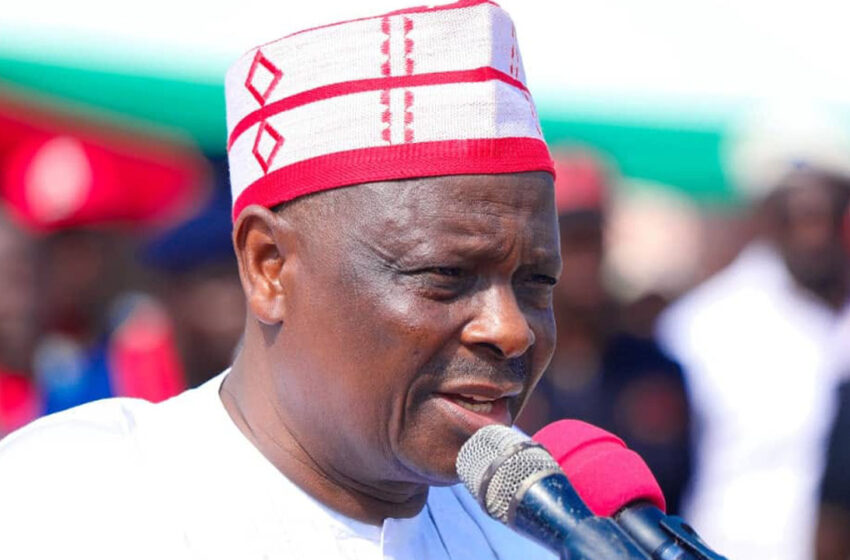Everything you need to know about Kwankwaso and the VP rumours

Rabiu Musa Kwankwaso remains one of Nigeria’s most influential political figures. With a career spanning decades, he has held positions as Kano State governor, Minister of Defence, and senator. Known for his grassroots politics and strong base in northern Nigeria, Kwankwaso established the Kwankwasiyya Movement, a political ideology centered on youth empowerment and good governance, which has continued to shape his image across the country.
After parting ways with the PDP and APC at different times, Kwankwaso founded the New Nigeria Peoples Party (NNPP) and contested the 2023 presidential elections under its banner. Although he secured just one state, Kano, his ability to disrupt the electoral map signaled a shift in Nigeria’s multiparty dynamics. His influence in the North-West remains a major factor in any conversation about 2027 presidential strategy.
NNPP Factional Fallout: “He Betrayed Our Trust”
Kwankwaso is now at the center of a bitter internal rift within the NNPP. A faction led by party founder Dr. Boniface Aniebonam has accused him of betrayal and hijacking the party structure after they allegedly granted him the presidential ticket in good faith. This group claims that Kwankwaso introduced a rival faction and attempted to modify the party’s logo and constitution without consensus.
Oginni Olaposi, national secretary of this faction, publicly declared that Kwankwaso’s actions fractured the party’s unity and credibility. Their position is clear: “Let APC have him.” These statements suggest they are prepared to sever all political ties with the former presidential candidate and consider his potential defection to the ruling All Progressives Congress (APC) as a political inevitability.
Why APC May Be Eyeing Kwankwaso
The recent resignation of Abdullahi Ganduje as APC national chairman further fueled speculation that the party might be preparing the ground for a Kwankwaso reentry. Political observers argue that this move could be strategic, especially as Ganduje and Kwankwaso have a long-standing rivalry rooted in Kano politics. Removing Ganduje could signal the APC’s intention to appease Kwankwaso and his supporters ahead of 2027.
In the broader context, Kwankwaso’s inclusion would bolster the APC’s northern strength and neutralize any threat from a resurgent NNPP. His popularity in Kano, Kaduna, and Jigawa makes him a valuable asset for any national campaign. Aligning with Tinubu could offer him a smoother path to relevance, whether as a running mate or political ally in the North.
VP Slot Offer: “Not an Insult” Says NNPP Chieftain
On June 30, 2025, Channels Television aired a revealing interview with NNPP spokesperson Ladipo Johnson. He stated that it would not be insulting if the APC or President Tinubu offered Kwankwaso the vice-presidential slot ahead of the 2027 elections. Johnson acknowledged that such political proposals are normal and should not be viewed as offensive, especially considering Kwankwaso’s political weight.
However, he was quick to clarify that the decision to accept such a position lies solely with Kwankwaso. While Johnson downplayed tensions, his comments exposed the strategic considerations at play within the NNPP. The party appears to be weighing its options carefully—balancing loyalty to its founding ideals with the reality of power politics in Nigeria’s volatile democratic landscape.
APC Speaks: “Kwankwaso Is Welcome”
APC spokesman Felix Morka reinforced the idea that Kwankwaso’s return would not be met with resistance. In a separate interview, he stated that the doors of the APC remain open to all progressive-minded Nigerians, including former members like Kwankwaso. He added that working with President Tinubu is a patriotic duty, and there’s room for collaboration if mutual interests align.
This endorsement, though subtle, reveals the APC’s openness to strategic alliances. The ruling party recognizes that bridging gaps with influential regional leaders like Kwankwaso could make or break future election outcomes. It also reflects the party’s understanding that inclusive politics is key to consolidating power ahead of 2027.
What This Means for 2027 Elections
The 2027 elections may seem distant, but political positioning has already begun. With talks of power shifts, alliance-building, and potential defections, the landscape is heating up. Kwankwaso’s influence, especially in the North-West, makes him a sought-after political figure, and his eventual decision could reshape the election narrative.
Should he accept a vice-presidential offer or rejoin the APC, the dynamics in Kano and neighboring states will shift significantly. The NNPP may lose momentum, but the APC would gain a grassroots powerhouse. Conversely, if Kwankwaso resists and rebuilds NNPP, he could challenge the status quo and emerge as a kingmaker or even frontrunner.
Kwankwaso at a Crossroads
As the political climate intensifies, Rabiu Kwankwaso finds himself at a decisive point in his career. Betrayed by factions within his own party yet being courted by the ruling APC, he must choose between preserving his political independence or partnering with the same establishment he once opposed. Either move carries consequences for his legacy and for Nigerian politics at large.
Whether he wears the vice-presidential badge or leads a revitalized opposition movement, one thing is clear: Kwankwaso remains one of the most strategic political figures in Nigeria today. His next move could define not only the NNPP’s future but the overall shape of the 2027 elections. Nigerians are watching closely.

